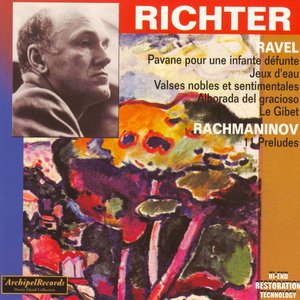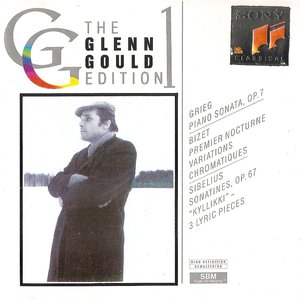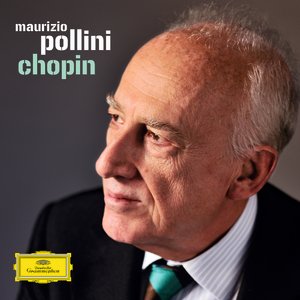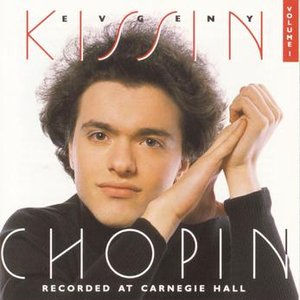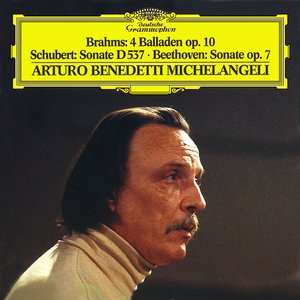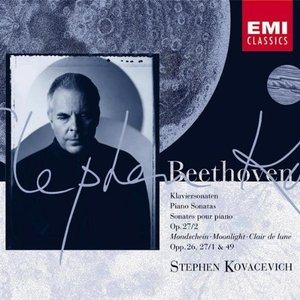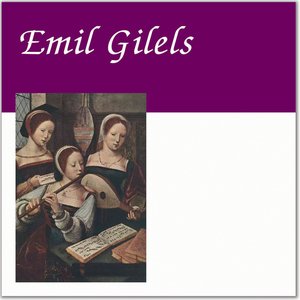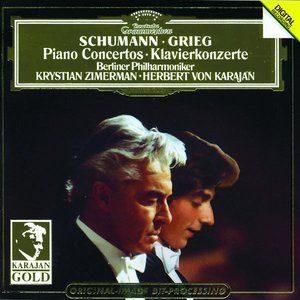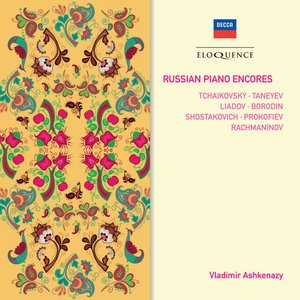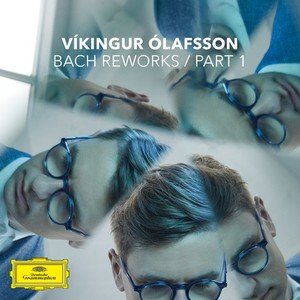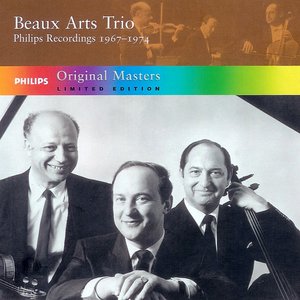Wiki
Loin de Beethoven dont il dit lui-même être tombé amoureux, Stephen Kovacevich nous propose ici un double album consacré à la musique de Bartok, Brahms, Chopin et Stravinsky. Dans ces pages, pour la plupart concertantes, le jeu brûlant du pianiste américain prend toute sa dimension. Son dialogue avec l'orchestre est sensible, intense, d'une nervosité bénéfique. Une fois de plus, ce pianiste à la carrière discrète et personnelle, nous convainc par sa grande intelligibilité. –Pierre Graveleau
Disque : 1
1. Piano Sonata, Op 10 N 1 : Allegro Molto E Con Brio (Beethoven Ludwig Van)
2. Piano Sonata, Op 10 N 1 : Adagio Molto (Beethoven Ludwig Van)
3. Piano Sonata, Op 10 N 1 : Finale:Prestissimo (Beethoven Ludwig Van)
4. Nocturne N 17 In B, Op 62 N 1 (Chopin Frederic)
5. Nocturne N 18 In E, Op 62 N 2 (Chopin Frederic)
6. Impromptu N 3 In G Flat, Op 51 (Chopin Frederic)
7. 4 Piano Pieces, Op 119 : Intermezzo In B Minor (Brahms Johannes)
8. 4 Piano Pieces, Op 119 : Intermezzo In E Minor (Brahms Johannes)
9. 4 Piano Pieces, Op 119 : Intermezzo In C (Brahms Johannes)
10. 4 Piano Pieces, Op 119 : Rhapsody In E Flat (Brahms Johannes)
Disque : 2
1. Concerto For Piano & Wind Instruments : Largo, Allegro, Piu Mosso, Maestoso
2. Concerto For Piano & Wind Instruments : Largo (Stravinsky Igor)Stephen Écouter Écouter
3. Concerto For Piano & Wind Instruments : Allegro (Stravinsky Igor)
4. Piano Concerto N 1 : Moderato (Bennett Richard Rodney)
5. Piano Concerto N 1 : Presto (Bennett Richard Rodney)
6. Piano Concerto N 1 : Lento (Bennett Richard Rodney)
7. Piano Concerto N 1 : Vivo (Bennett Richard Rodney)
8. Piano Concerto N 2, Sz 95 : Allegro (Bartok Bela)
9. Piano Concerto N 2, Sz 95 : Adagio, Piu Adagio, Presto (Bartok Bela)
10. Piano Concerto N 2, Sz 95 : Allegro Molto (Bartok Bela)
a frustrating compilation, but indispensable nonetheless, March 5, 2010
By Discophage (France) -
This review is from: Stephen Kovacevich: Great Pianists of the Twentieth Century, Vol. 61 (Audio CD)
As popular as they have been, these Philips "Great Pianists of the Century" releases have often entailed endless frustrations for the record collector. Take this "Stephen Kovacevich II". The Stravinsky and Bartok piano concertos featured therein were originally paired together on LP (recordings made in 1969 - the pianist went by the name of Stephen Bishop back then), so I guess it makes sense to have re-released them together. Still, the Bartok 2nd was already available on CD and more conveniently and coherently collated with the composer's two other concertos, so here is an inescapable and frustrating duplication (Bela Bartok Piano Concerti Nos 1 2 3 Stephen Bishop-Kovacevich (Philips), reissued on Bartók: Piano Concertos Nos. 1-3). On the other hand, we get only one half of the 1969 Bartok solo recital. The complete one would have been much more attractive: on the original LP (Philips 6500013, reviewed in The Gramophone Sept. 1970) it included volume 6 of Mikrokosmos. Where is that now? Probably confined forever to LP oblivion. Frustrating: Bishop's Bartok is awesomely powerful and atmospheric, one wants it all. Brahms' op. 119 is from Bishop's traversal of Brahms piano output from the early digital era (Piano Works), which everybody interested in Brahms or Kovacevich will already have. It has been reissued many times, including on budget collections, like Brahms: The Late Piano Music; Handel and Paganini Variations. Beethoven's 5th Sonata (op 10/1) from 1970 is excerpted from a Beethoven recital which also had Sonata 17 & 18 (Philips 6500 392, Grammophone 3-74): these at least have been reissued on the companion vol. 1, Stephen Kovacevich 1 Great Pianists of the 20th Century, a model of what the "Great Pianists" should always have been: reissues of complete LPs with material not available otherwise on CD. Chopin? Philips 6500 393 (Gramophone 7-73) offered a coherent program of essentially late Chopin works. From the reissue are missing Polonaise-Fantaisie" Op. 61, Barcarolle, Mazurkas No.39-41 Op. 63/1-3. We get merely the crumps. Fortunately the complete recital has been reissued on a multiple-pianist Chopin collection, The Best Of Chopin - but here you are: more duplication. And what a shame to have missed the opportunity of reissuing Bishop's first recital, HMV CLP1655, with Beethoven's Pathétique (the one collated in the companion vol. 1 is a later Philips remake from 1970, the original pairing of the 3rd Piano Concerto on Philips 6500 315) , Schubert's Moment Musical No. 6, Chopin's. Barcarolle, Impromptu No. 1 Op. 29 and Ballade No. 4 (Gramophone 9-63).
On the other hand it is great to have Richard Rodney Bennett's Piano Concerto No. 1. Recorded in 1971, it originally came on Philips 6500 301, paired with the composer's Jazz Calender for Jazz orchestra (Gramophone 3-72). It is a nice piece, in a contemporary language that's neither intractably advanced nor entirely distinctive, Schoenberg with much drama but also more sensuousness followed by two two energetic, kinetic and syncopated movements interrupted by a slow movement rising to great power and drama. If offers a fine display of Bishop's virtuosity and muscularity. With the Stravinsky and Beethoven's op. 10/1, it is the main interest of this disc.
The Stravinsky and Bartok concertos were fine recordings, outstanding even in the case of Bartok. In a conception which overall sounds very similar to the composer's own 1964 recording with Philippe Entremont (Stravinsky: Concertos), the slow introduction to Stravinsky's Concerto for Piano and Winds is very cleanly articulated, with crisp staccatos from the brass and woodwinds, even better than Stravinsky's who, in comparison, seems almost plodding. The development section is magnificently done, the orchestra maybe not as snappy and as vividly spotlighted as Stravinsky's, but powerful, imaginative and precise. Bishop has great power, rhythmic bounce, formidable left-hand. The slow central movement on the other hand is at variance with the model established by Stravinsky, thanks to its slower tempo (7:41 to Stravinsky's 6:59) and sounds at times dangerously on the brink of dragging. The "funeral march" passage at 1:08 doesn't have the massive presence it has with Stravinsky or Vaclav Neumann (with Walter Olbertz, Stravinsky: Piano Concerto; Concerto Dumbarton Oaks; Suites Nos. 1 & 2; Piano Pieces) and the BBC trumpet doesn't blare as much. Still, Bishop has impressive and massive pianism in the cadenzas (though not always staccato as Stravinsky's markings call for). The finale, again fairly close in conception to Stravinsky's, shows biting orchestral colors (glorious BBC brass!) and muscular, authoritative pianism. Overall, this is an excellent version, in a conception in general very similar to the composer's own.
Bishop and Davis' recording of Bartok's second is also a version of considerable power, drive and excitement, and also evocativeness in the outer, hushed sections of the middle movement. Never has the central, fast section of that middle movement reminded me so much of the Miraculous Mandarin - and, not surprisingly, Bishop and Davies are the fastest here in the numerous versions I've heard. Their finale is - literally - breathtaking; The only limitation of this version then is perhaps that the drive costs a little lack of flexibility in tempo (in the first movement), and more important that the power and massive (and incredibly exciting) forward presence of the piano blurs many of the fine, chirping details from woodwinds. Still, this was truly one great recording of the 20th Century.
Tous les utilisateurs de Last.fm peuvent modifier les descriptions d'album. Contribuez !
Tous les textes publiés sur cette page par des utilisateurs sont disponibles sous licence Creative Commons Attribution paternité partage à l’identique ; d’autres conditions peuvent s’appliquer.
